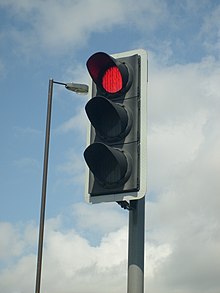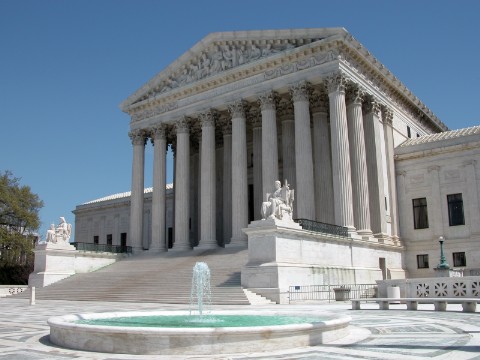With finish line in sight, casino express sidetracked to await signals from D.C.
sdecosta@s-t.com
July 22, 2012
The tribal frenzy of the last eight months has played itself out and the area is settling into a waiting game to determine when, and if, it will get a casino of some kind.
With the expected approval of its compact by the Senate this week, the Mashpee Wampanoag will have met all the conditions set by the state for being allowed to run a sovereign tribal casino in East Taunton. The action, or inaction, now moves to the federal Department of the Interior.
First, the department's Bureau of Indian Affairs must approve the tribe's negotiated compact with the state. Then, and more importantly, the department must agree to take the tribe's land into trust, a prospect now clouded in legal murkiness.
But all that might be moot. Lurking in the weeds is a lawsuit filed by prospective New Bedford casino developer KG Urban Enterprises. A challenge to the state law's tribal preference for a Southeastern Massachusetts casino was thrown out of federal court in February, but a three-judge panel could rule on KG's appeal before the summer is out.
Where does all that leave the area's pursuit of the sort of economic development and jobs promised by a resort casino?
"Time is the answer here," said Clyde Barrow, director of UMass Dartmouth Center for Policy Analysis. "The question is, how much?"
Three possibilities
Barring further legal action (and that's a big presumption), essentially three things can happen.
First, federal court could uphold KG Urban's appeal, throwing out the Indian preference and opening Southeastern Massachusetts to the same commercial bidding that will be happening in the two other sections of the state to get resort casinos. This is, at best, a toss-up.
Second, the tribe could have the land taken into trust in the next year or two, paving the road to the opening of a tribal casino at roughly the same time the two commercial casinos come online. This is seen by most experts as an extreme longshot.
Third, and considered most likely, the land-into-trust application could languish at the Interior Department or in federal court, depriving the area of the type of economic and jobs development a casino is expected to bring.
"The Indians could tie this up to the degree that the area could be left without a casino," said New Bedford Democratic state Rep. Robert Koczera, who pushed unsuccessfully in the House for a deadline on the land-into-trust issue.
"The issue for me is not whether we get a commercial casino or an Indian casino, as long as we get a casino because the real issue for me is jobs," the longtime gaming proponent said. "I don't like the idea our area could be left in some sort of limbo."
Barrow said: "Taking land into trust, even under the best of circumstances, is a lengthy process. Even with no controversy, it can take six to 10 years, and that was before Carcieri."
The U.S. Supreme Court's Carcieri decision, handed down in a Rhode Island case in 2009, ruled that land could not be taken into trust for any tribe that was not under federal authority prior to 1934. The Mashpee Wampanoag were federally recognized in 2007.
Since the Carcieri decision, the Department of Interior has taken land into trust for one tribe, the Cowlitz in Washington, claiming that the tribe was under federal authority in 1934 even if it wasn't formally recognized until later. The Cowlitz case is now the subject of multiple lawsuits, which legal experts predict will take years to settle.
Carcieri is not the only stumbling block to land into trust. While the state agreed in the compact to support the tribe's bid, the application has been questioned by other tribes from the area, notably the Pocasset, Pokanoket and Massachusett.
"There have been some very serious issues raised about the Mashpee's ancestral ties to Taunton," said Barrow, UMD's gaming expert. "That could be incredibly tenuous. That's going to be a hard row to hoe to make that case."
"Last in line"
The longer the delay, the greater the economic hardship to the area, legislators argued in opposition to the compact last week.
"The legislation and compact guarantee that SouthCoast will be last in line," said state Sen. Mark Montigny, D-New Bedford, whose parliamentary maneuver blocked Senate consideration of the compact until this week.
The later a casino is built, the more competition it would face.
"Within a short time, the other casinos could be up and running prior to anything happening in
Southeastern Massachusetts and then investors will realize that the market is saturated," said state
Sen. Michael Rodrigues, D-Westport, a longtime gaming opponent.
And the competition wouldn't just come from Massachusetts.
"The chief problem for Southeastern Mass. is that any possible casino development would be the last one in place in Massachusetts," said Richard McGowan, a Boston College economist who focuses on gaming. "So it would certainly be at a disadvantage compared to other Massachusetts casinos, Rhode Island casinos and a New Hampshire casino."
Rhode Island allows only slot machines at Twin River and Newport Grand, but a question on the ballot for the November election would allow those facilities to offer table games.
"Depending on what happens in Rhode Island, there could be more competition for Southeastern Mass.," Barrow said.
New Hampshire does not allow casino gaming but has debated the issue for several years, edging closer to approval every time.
The timing also could boost the pool of potential applicants for a Southeastern Massachusetts license.
If indeed this area is last, the losers of what currently looks like a six-way race for the Western Massachusetts license could jump in here, Barrow said.
The state could grow tired of waiting for the tribal land to be taken into trust, with the Gaming Commission having the authority to pull the plug on the deal if and when it determines the process isn't working. Another possibility is that the Legislature could amend the gaming legislation, setting a deadline for the land in trust.
Tribe could build later
The biggest reason giving tribes the advantage for the Southeastern Massachusetts license in the first place was the fear that a tribe would ultimately get land into trust, assert its federal rights and build a competing casino that presumably would not have to pay anything to the state.
But the compact has taken at least some of that fear away. If the state issues a commercial license in Southeastern Massachusetts and the tribe subsequently succeeds in having land taken into trust, it then could build a fourth casino, but it already has agreed, in the compact, to give the state 15 percent of its gross gaming revenue. If the tribal casino is exclusive in the area, the tribe will pay 21.5 percent.
"What if they do get land into trust in five to 10 years," Barrow asked, and a commercial casino already has been licensed? "They'll be a late entrant into a mature market. It's conceivable they could find a financial backer, but not for a $500 million resort casino. They might go with more of a boutique facility."
Andrew Stern, managing director of KG Urban, said that provision would justify the Gaming Commission seeking commercial applicants for the Southeast.
"The Gaming Commission can move forward with a competitive process for a commercial casino license in all three regions, a process that will ensure the selection of the best proposal for each part of the commonwealth," Stern said. "The Southeast region would see the jobs and economic activity equal to the other two regions, and the commonwealth would receive the licensing fees and 25 percent of gross casino revenues in tax payments. If years or decades from now the Mashpee are able to secure land in trust, the commonwealth's interest is still protected, because it and the Mashpee have agreed that a tribal casino would still contribute 15 percent of its revenue to the state. In the meantime, all regions of the commonwealth are treated equally, and the commission can license three shovel-ready projects, instead of only two."
KG Urban, which wants to build a $500 million casino at the site of the abandoned power plant on the New Bedford waterfront, is still counting on the federal appeals court to open the area to commercial bidding.
"The legislative approval does nothing to remove the real obstacle to tribal gaming in the Southeast — the reality that the Mashpee are a landless tribe ineligible to bring land into trust under a United States Supreme Court decision that remains the law of the land," said KG counsel Paul Clement.
"And the legislative effort to set aside the entire Southeast for a landless tribe is inconsistent with the constitutional guarantee of equal protection."





No comments:
Post a Comment